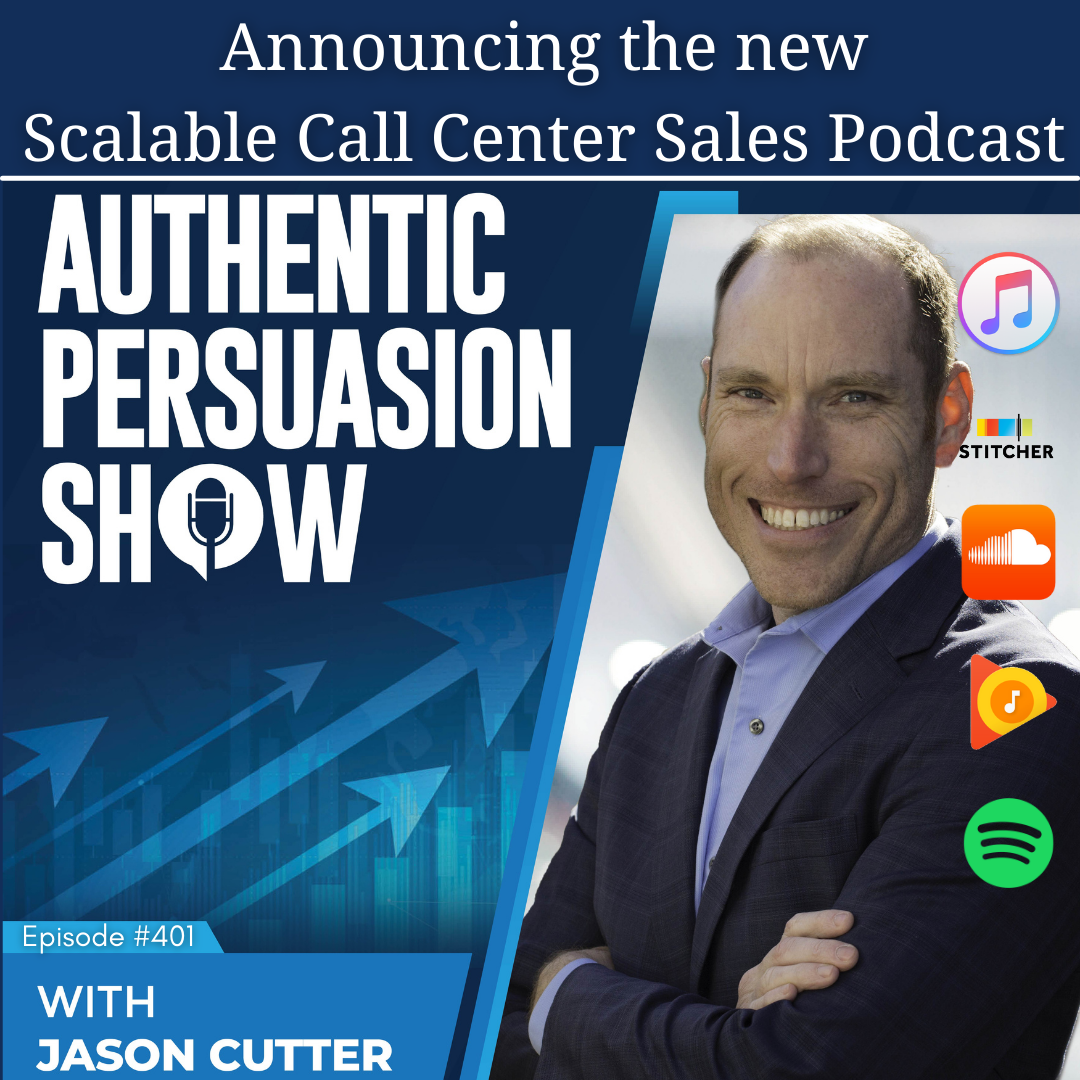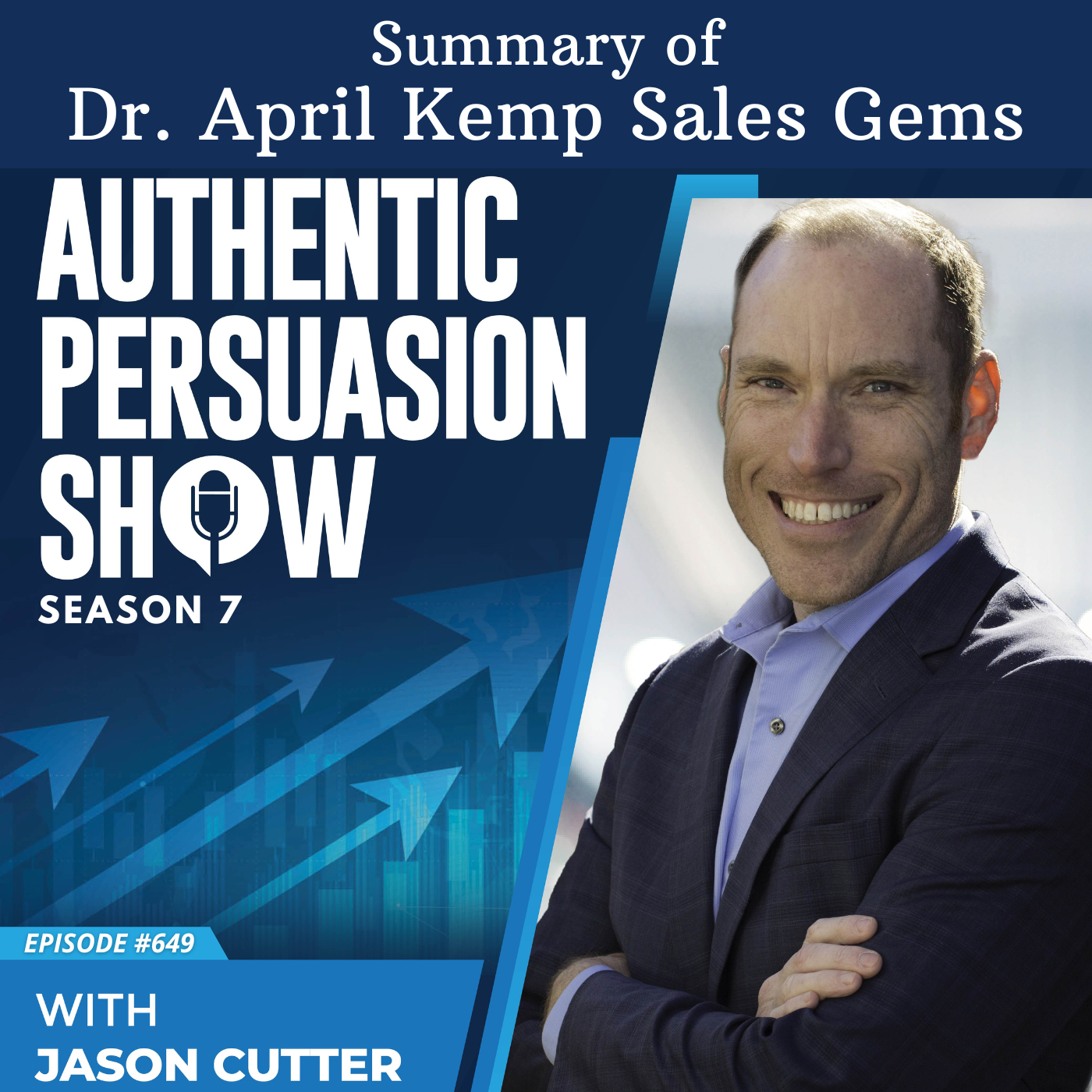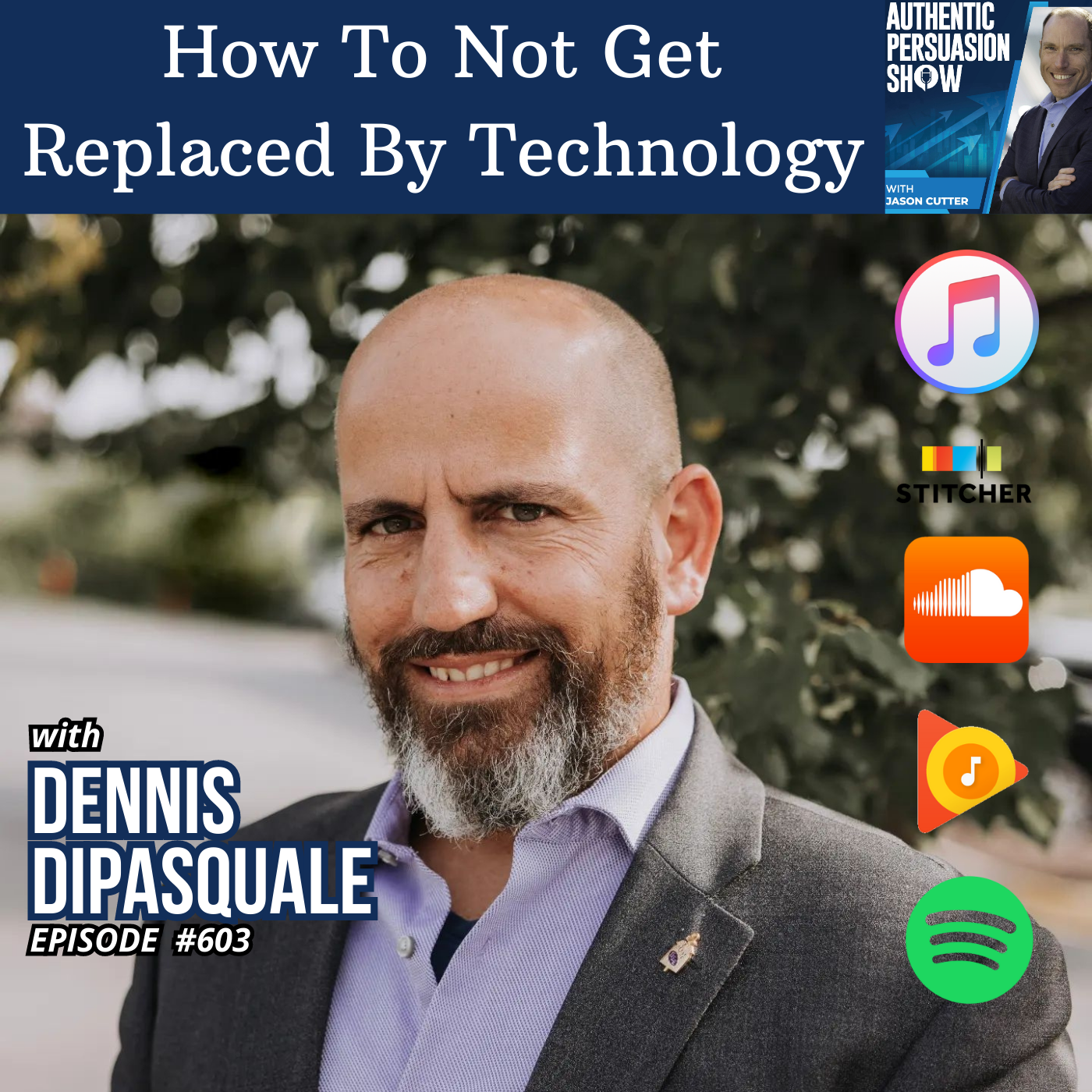Show Notes
This is the second segment of the conversation I had with Ken.
In Part 2, Ken and I talk about:
- Why “Hire Slow, Fire Fast” might not be right for your organization
- Are you making your hiring process too painful?
Download The Power of Authentic Persuasion ebook
Enroll in the Authentic Persuasion Online Course
Connect with Jason on LinkedIn
Connect with Ken on LinkedIn
Ken’s Bio:
Ken Lazar is a Professional Recruiter and Principal in Ability Professional Network, LLC.
Having spent over twenty years in talent acquisition and professional staffing, Ken previously held the positions of Managing Director for Experis Division of ManpowerGroup and District Manager for Kelly Services. Ken’s teams have put over 12,000 people to work.
Over the course of his career, Ken has won many top sales awards including District of the Year, the Consumer’s Choice Award for “Best Staffing Agency” in Central Ohio and the Leadership Award for Influential Selling. Ken led his team to twice winning his companies highest award, the ManpowerGroup “Power Award”, for growth, profitability and community service.
Understanding the needs of top sales performers and the importance of sourcing and hiring top sales professionals, Ken and his son Matt formed Ability Professional Network, LLC. The recruiting staff at APN are specialists at recruiting sales and sales management professionals. The company’s goal is to help its clients to grow their business and their candidates to reach their career potential.
A graduate in Industrial Engineering from Kettering University with a Master of Science in Industrial Administration from the Krannert Business School at Purdue University, Ken and his wife, Nancy, reside in Plain City, Ohio.
Ken is an avid golfer, custom pen maker and owns the best dog on the planet.
Ken’s Links:
Websites:
LinkedIn: linkedin.com/in/kenlazar
Twitter: https://twitter.com/AbilityProNet
E201 – Transcript
Jason: Hey everybody. Welcome back to the sales experience podcast. Welcome back to part two of my conversation with Ken Lazar from ability professional network. He and I are just going to continue the conversation about recruiting both for managers and owners who are listening. This could be very valuable in kind of some of the strategies and what he’s seeing in the marketplace from the recruiting side of dealing with just sales professionals and then also if you’re a sales professional or an aspiring sales professional. This whole conversation, these four parts, super valuable to help you get some insight into what it’s like recruiting sales professionals, how to be prepared and what do you really want instead of what you feel you should do. But what do you really want? So here it is part to enjoy.
Jason: To present themselves instead of me filtering through the 50 or 80 or a hundred candidates that are all along. The same ones you’re talking about are the people who seem to be submitting cause it’s easy and no real intention of moving forward with it. And so I make them do a little bit of work and then the right people will, you know, kind of keep pressing forward.
Ken: Well good that you have some filters in there because it takes a lot of time. They go through the resume.
Jason: Yeah. It can be a giant time suck of just filtering through the candidates in mass.
Ken: So there’s another strategy that’s, I dunno if you’ve uh, it’s called hire slow fire fast. They’ve got a good story. You’ll get a chuckle out of this. So I was on a panel discussion with a group of people, business owners and uh, the guy who was sitting next to me, a successful guy too. They were asked a question, how do you hire? And he goes, Kenny says we hire slow and fire fast. And I’m going, okay, I hear you. So afterwards I went up to him and I said, I heard you say that you hired slow and fire fast. He says, yup, that’s the way we hire. And I said, how do you manage your company with only B and C players? And he looks at me like I was absolutely crazy. I said, well, what do you mean? I said, well, if you hire slow, the A players are not going to stick around.
Ken: What you are hiring are going to be the B and C players and if you’re waiting so long to hire them, why are you firing them fast? If you are training them and doing the right thing, then you should not be hiring on fast is it too long to hire slow. So I don’t know. I think that that’s a bad strategy in the current market. I think that you need to keep the hiring process moving along. You need to keep your candidates well aware of what’s going on. I don’t mean to hire precipitously. I mean you can take your time and make sure that your candidates understand what you’re doing. Just not letting them wait.
Jason: So do you think a hire fast fire faster is better?
Ken: No. I want the companies to have a definite hiring process and when they start out, and then I asked them what the hiring process is going to be if they’re giving me the assignment and we followed the process and we tell the candidates what to, what the timeframe is going to be, what the process is, how many people that they’re going to interview. So the candidate has clear expectations about the hiring process. If you just hire slow just for hiring slow, that doesn’t make any sense.
Jason: Well, and that’s interesting because I’ve been a part of several organizations where they just feel like it’s not valuable unless it’s slow and or painful in the recruiting process. Right. So even for the candidates and the number of interviews and the time you have to wait in between, you know, it’s kind of like the old dating rule of waiting 48 hours, just putting these things in place to make it long and drawn out. What’s your thought on that?
Ken: It’s like waterboarding. And I will tell you this is crazy that this happened to a very good friend of mine. Otherwise, I would call a person crazy. So my friend that went up to interview at a hospital or director-level position. You got there in the morning and you started interviewing in the morning and at the end of the day he had interviewed with 42 people. Some were one-on-one, some were in groups. It took 42 people to look at him. Do you give a fair opinion on whether he was qualified for the position? So my feeling is that you should keep the process going as fast as you can. I just to make sure that you are keeping good candidates interested.
Jason: So let me ask you this about the recruiting process since we’re talking about it in the timeline and the process, I know that you deal with a lot of different clients, a lot of different companies. Is there kind of a standard model you like to use for the interviews, the number of interviews, the processes you make salespeople go through? Is that pretty dependent on the company?
Ken: It’s driven by our clients, Jason. But each of our clients has a methodology in their hiring process. Sometimes they ask us our opinion and we’ll give them our opinion. But some clients, like the first interview to be a telephone interview in person interview and then maybe multiple in-person interviews during the day. Some of our clients like to bring the salespeople or candidates in immediately. They want to see now the very first time, don’t want to waste their time on the telephone. They can see so much more in a face to face interview and you’re looking at nonverbal communication, verbal communication, all those types of things. So I prefer to get the client and the candidates in front of the client as soon as possible to make good decisions.
Jason: Yeah. Well, and my only caveat with that is what I’ve found from my experience is two things. One is depending on what the sale involves, phone face to face, where the primary time is spent in that sale is that’s the best place to start with the interview. So in my experience, a lot of inside sales type of jobs, call centers, it’s a phone job. And so really what I want is to talk to somebody over the phone first, see if that conversation is easy. Is it somebody I’m enjoying talking to? Because there’s some people who face to face, they’re really good, but over the phone they’re not. And obviously vice versa. If it’s a face to face job, then your phone skills are one thing, but how you present yourself. And then the other part, what’s your opinion on is, what I’ve found too that’s very important is depending on how long the sales cycle is, that the salesperson is walking into what they’re going to be selling the product or service is that the interview process and or some of the hoops and challenges should be commiserate to that process. Right? So if it’s a longer sales cycle, maybe they have to do a little bit more to make sure they have the stamina when they get into that role.
Ken: Well, that’s a good point. I never thought of it that way. But Jason, I think you’re absolutely right. I mean, there are sales professionals that are very transactional in what they’re selling,
Jason: Which is great if you’re recruiting or you’re in a role where it’s a transactional, you know, sales role, right. And it fits them.
Ken: Yeah. And then they’re going to have a different sales cycle process and outlook. Then a person that is selling capital equipment for example, right. We deal with some clients that have some very expensive, very engineered machinery. The time, the sales cycle, we were talking maybe a $10 million piece of machinery, it could be a year. So you have a different type of salesperson that’s going to be successful in that environment versus something a person that’s going to be more transactional, like retail’s very transaction. Right. So, uh, yeah, you’re absolutely right. And putting a transactional salesperson in a long sales cycle will drive them crazy.
Jason: Yup. And vice versa. You put a long sales cycle person who’s, you know, used to relationships and constant contact and moving it forward a little bit at a time and bringing in lots of stakeholders and you put them in a short sales cycle, transactional type of thing. Whether it’s a one call close or retail or you know, maybe car sales and it’s not going to be a good fit because there’s not the same urgency.
Ken: That’s exactly right.
Jason: And so what I’ve found is then I take that person, you know, depending on what the role is, make the interview process somewhat relative to the sales cycle. Obviously if it’s a 18 months sales cycle, it’s not going to be an 18th month interview, but it’s also not going to be really quick. And if it’s a short sales cycle, that interview process might be quicker and might get to the cut to the chase faster because of, you know, the people you’re dealing with.
Ken: Yeah, I agree with that. Totally. And actually there’s this philosophy about make your interview candidate more of a sales call, have him make a sales call on you and that will give you a good indication about what type of salesperson he is.
Jason: So let’s get back to the candidates. I’m thinking about, you know, the people who might be listening to this show, and let’s talk about the sales professionals who are listening. Maybe they’re thinking about changing jobs, maybe they’re in between jobs right now. What’s some of the advice would give to that person who’s looking either for a better opportunity, a new opportunity, whether the economy is good or maybe by the time they listen to this, it’s shifted and the market’s changed. What are you seeing or what would you tell the prospective sales pro out there?
Ken: Well, I would tell them to be prepared. So the main hiring media right now actually is LinkedIn. So I would rather look at a candidate’s LinkedIn profile than I would the resume. And there’s a couple of reasons for that. One is that the LinkedIn profiles are all commonly structured. So I know where to look for things or as a resume that could be anywhere. So, and the other thing is, is that I can click on a URL for a LinkedIn profile and determine whether or not that this person has spent a lot of time, uh, developing a story about professionalism. I would rather recruit on a LinkedIn profile rather than on a resume. So, number one and most important is get a decent headshot. I mean, I don’t know about you, but I have seen more professionals crop their wife out of their wedding picture. He’ll have the Carnation in their Guten air and that does not connote a sales profession. So my feeling is to go to Penney’s, go to target, go somewhere and get a professional headshot. My recommendation is, although this may be old school, I suggest you put on a sports coat.
Jason: Alright, that’s it for part two of my conversation with Ken. Make sure to go to cutterconsultinggroup.com where you can find the show notes, the transcripts, and all of Ken’s links on there. And also if you want more information, go on the website. You can hit me up or you can follow me on LinkedIn as well. And as always, keep in mind that everything in life is sales and people remember the experience you gave them.
![[E201] Sales Recruiting with Ken Lazar – Part 2 of 4](https://episodes.castos.com/salesexperiencepodcast/images/Ken-Lazar-Cover-Image.png)


